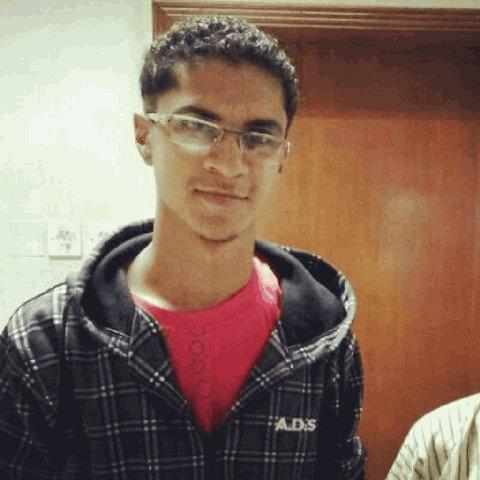Hasan Ali Shahdad AlBalooshi was an 18-year-old student when Bahraini authorities arrested him from his house in April 2013. Since his arrest, Hasan has suffered both physically and psychologically as a result of torture, ill-treatment and attacks on his religious beliefs. He remains in Jau Prison where he is carrying out his 15 year sentence.
On 23 April 2013, officers in civilian clothing and riot police surrounded Hasan’s family house in Isa Town, broke down the main entrance door and raided the house. Without presenting an arrest warrant nor providing a reason, they arrested Hasan as well as his cousin, Mortada Abdelhadi, who was with them at the time. Following the arrest, Hasan was forcibly disappeared for five days; his family had no information indicating his fate or location.
During those five days of disappearance, Hasan was at the CID in Adliya where criminal investigations officers interrogated him without a lawyer. Officers tortured Hasan to extract confessions from him; they severely beat and kicked him, insulted him and attacked his religious sect, hung him from his legs and pulled out a fingernail that was previously damaged and was slightly coming off. Once the interrogation was over, Hasan’s family were given the clothes that he was wearing at the time of his arrest and reported that they were covered in blood. Hasan’s family was only able to visit him 22 days after his arrest, on 15 May 2013. During their visit to Jau Prison, they noticed signs of beating and torture on his face, namely swelling near his eyes and nose.
In total, two cases were raised against Hasan: on 4 March 2014, he was convicted of arson, of a car near Roundabout 18 in Hamad Town, and was sentenced to 5 years in prison; on 25 March 2014, he was convicted of detonating a gas cylinder on Roundabout 17 and was sentenced to 10 years, leading to a total sentence of 15 years in Jau Prison. On 23 June 2014, Hasan’s judgment was upheld by the Court of Appeals.
Since his arrival to Jau Prison, Hasan has suffered ill-treatment and humiliation at the hands of the prison authorities. On 10 March 2014, Hasan and his cellmates were, for unclear reasons, all subjected to collective punishment and torture. The prisoners were prohibited from praying and from using the bathroom. If one of the inmates went to the bathroom, officers gathered all the other inmates in a line and beat and kicked them until that inmate reached the bathroom, and the same happened on the way back after the inmate exited the bathroom. As a result of neglect and inhumane treatment, Hasan suffered from pain in the teeth and damage to his gums. His glasses were broken, and his vision impairment worsened. Throughout his time in Jau Prison, Hasan was only allowed to get his eyes checked and to get his glasses adjusted once, one year after his arrest, in 2014.
Hasan’s poor health and well-being were further exacerbated by the COVID-19 pandemic and the virus’ outbreak inside the prison. Family visits were suspended and replaced with irregular and short video calls which often do not last longer than 10 minutes and which are constantly monitored. On 20 March 2021, Hasan’s family received a call from another prisoner’s family, Sadeq Abdali AlAsfoor, who informed them that the prisoners undertook COVID-19 tests and their results could be viewed on the website of the Ministry of Health. When the family checked the website, Hasan’s results showed that he tested positive for COVID-19.
Following the news of the virus outbreak inside Jau Prison, all contact with Hasan was cut off, and his family’s last call with him had been on 21 March 2021. The next call he was able to make was on 5 April 2021 to inform them that he was transferred to Building 18; it was very short and Hasan was coughing. His family felt that he was not comfortable during the call, indicating that it was probably monitored. On 9 April 2021, Hasan had a video call with his family, and he told them that he had recovered and was transferred back to Building 20. In between those two calls, Hasan had been taken to the isolation ward in Hidd where he stayed for two days. He was very uncomfortable during his time there because he had to wait a long time to go to the bathroom, he did not receive proper medical care, the meal portions were not adequate, the authorities did not provide any warm drinks, nor any masks or gloves, and prisoners were not allowed to go outside to for some fresh air.
Bahraini authorities arrested Hasan when he was only 18 years old, without presenting an arrest warrant, they tortured him into confessing, attacked his religious beliefs, and deprived him of access to his lawyer and to health care. Additionally, the authorities’ neglect and failure to contain the COVID-19 outbreak led to Hasan contracting the virus, for which he later received minimal medical care. All these actions constitute violations of Bahrain’s obligations under the Bahraini Constitution and under international law, namely the Convention against Torture and Other Cruel, Inhuman or Degrading Treatment or Punishment (CAT) and the International Covenant on Civil and Political Rights (ICCPR). ADHRB urges Bahrain to grant Hasan a fair retrial that respects international judicial and evidentiary standards, to investigate allegations of torture with a view of holding perpetrators accountable, and to respect basic standards of hygiene and sanitation to prevent the situation from escalating any further.





